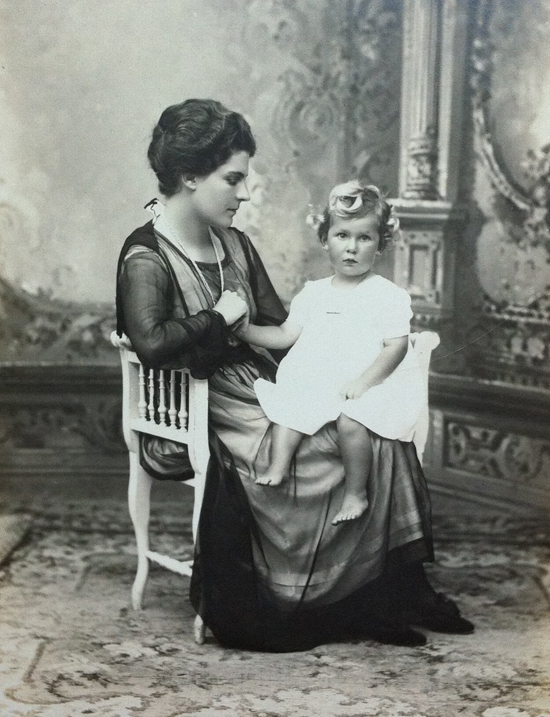
Ephemera
Family Bibles - John Barker of Tunis
The story of the Barker family in the Levant goes right back to William Barker (1739-1825), merchant and a member of the Levant Company, based in Smyrna. He was born in the market-town of Bakewell in Derbyshire and some branches of his descendants lived in the Levant till 1956, so for nearly 2 centuries. William married twice and had a good crop of children from both marriages, though as was common in those days only a minority grew up surviving the many diseases and other dangers particularly present in the Levant. From William’s first marriage (Flora Robin, described as ‘French subject born in Smyrna’) of the 7 children, only one produced issue in turn, John (1771-1849) who married in 1800 Marianne Hays (from a British Levant diplomatic family). John Barker was Consul of the Levant Company in Aleppo maybe as early as 1799, but certainly from 1803. He seems to have remained in post until 1825. John Barker spent his retirement years in Suedia (ancient Seleucia Pieria), on the banks of the Orontes River, near the city of Antioch. He built a spacious house for himself in Suedia, and planted fruit trees. The native inhabitants, both Muslim and Christian, loved and respected him and his family. Barker was especially interested in the fruits of peach, nectarine and apricot. Thanks to his botanical garden, he introduced many oriental plants and trees to England and Western plants and trees to Syria. John Barker had 5 children, only one of which Charles Flott Barker (1812-1873) produced issue who married Victorine Thérèse Martin, born Aleppo 1819, so again a European Levantine origin though details are lost to history. This couple had 2 children only one of which survived till adulthood and subsequently produced issue: John Edmund Lancester Barker (1841-1945) who was a mining engineer. This John Barker married in 1865 in Cagliari, Sardinia, Maria Teresa Anna Messedaglia and this couple in turn had 9 children, recorded in detail in this family Bible. The Bible is in English and appears Anglican in nature, so it appears the case of the wife (presumably a Roman Catholic from the island) adopting the husband’s faith.
This family Bible is not only an accurate record when each of these 9 children was born (right down to the hour), but the locations show where the family moved to presumably following the father’s next professional commission in the mining world at the time, in sequence: Sardinia, Damascus, Sicily, Tunis. It is interesting to note that as the only surviving child John Barker did not inherit a family Bible, but perhaps this got lost in the various turmoils from earthquakes, disease and uprisings the region suffered from time to time or his parents were not very observant Christians?
This family Bible in the same hand-writting style (presumably of John Barker) also records his own marriage and that of his children in sequence. Interestingly John Barker’s eldest daughter marries a Frenchman (Charles Gustave Roselund - a timber merchant) but at the local British Consulate 1889, presumably to retain her British citizenship. Two of the subsequent daughters also marry locally based Frenchman, this time in the military as Tunis was very much a full French possession since 1883.
John Barker died 1925 in France and this and all subsequent entries of death are recorded in a different pen and the tradition went till 1944, recording the death of Léon Pinchart, husband of the youngest adult surviving child of John, Mary Zoé Barker.
Although the Bible is no longer upkept in terms of recording births, marriages and death it nevertheless is a physical link to earlier generations and like most family Bibles treasured for that intrinsic value. That pride is also reflected on the family tradition of this branch to honour the family name, as recorded by the descendant Guillaume Pinchart: “By way of anecdote, according to my grandfather (Jacques Pinchart), John Edmond Barker didn’t have a son to perpetuate the family name of its Barker branch. That is why Jacques Pinchart added the name ‘Barker’ to his son name. So the name of my dad is Bruno ‘Barker’ PINCHART, my name is Guillaume Bertrand ‘Barker’ PINCHART, and my son Paul ‘Barker’ PINCHART.”
Family Bibles are also often frustratingly lacking in detail, such as the complexion, character traits of a child, why the family moved from one place to another, important events affecting the family excluding birth, marriages and deaths. But family Bibles were usually a simple record akin to a church register of new additions and unions within the ‘wider Christian fellowship’ - geneaology back then for most families wouldn’t be seen as a worthwhile pursuit unless the goal was to prove an inheritance, title or a royal link to get a title. And for the vast majority of families just getting by would almost certainly occupy most of their energies.
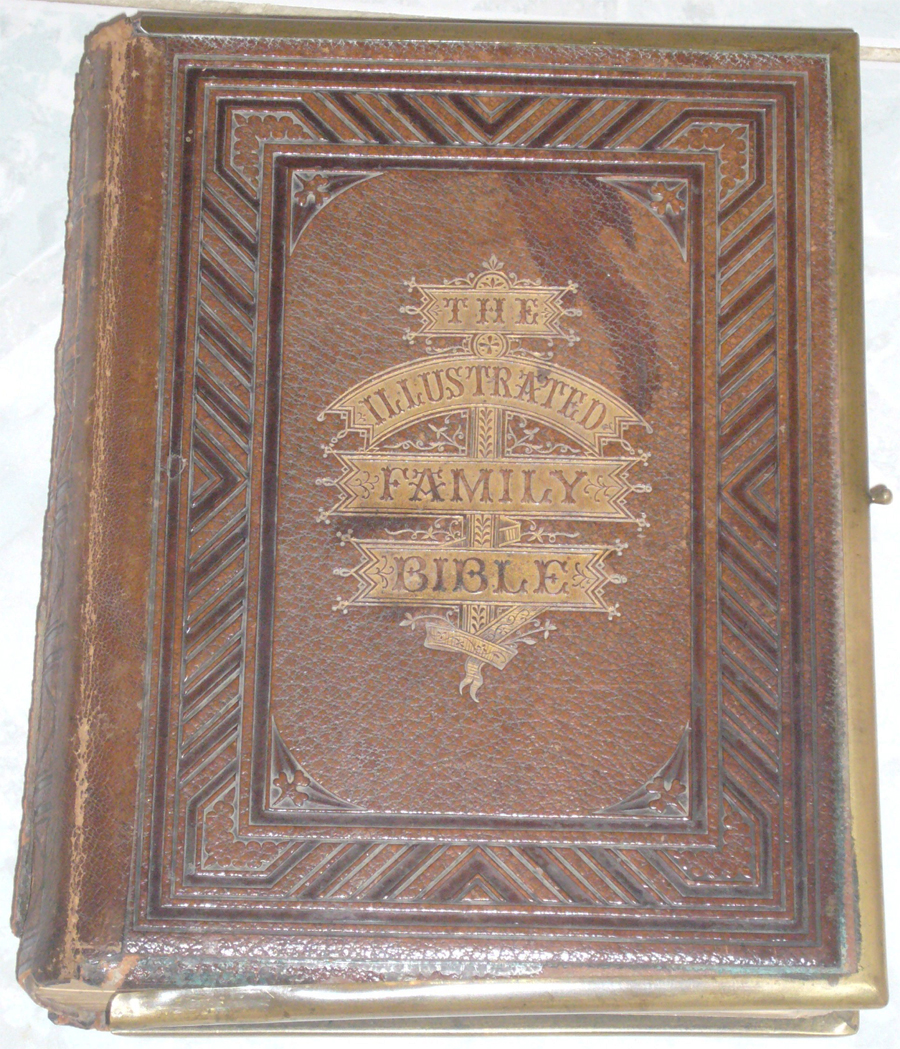
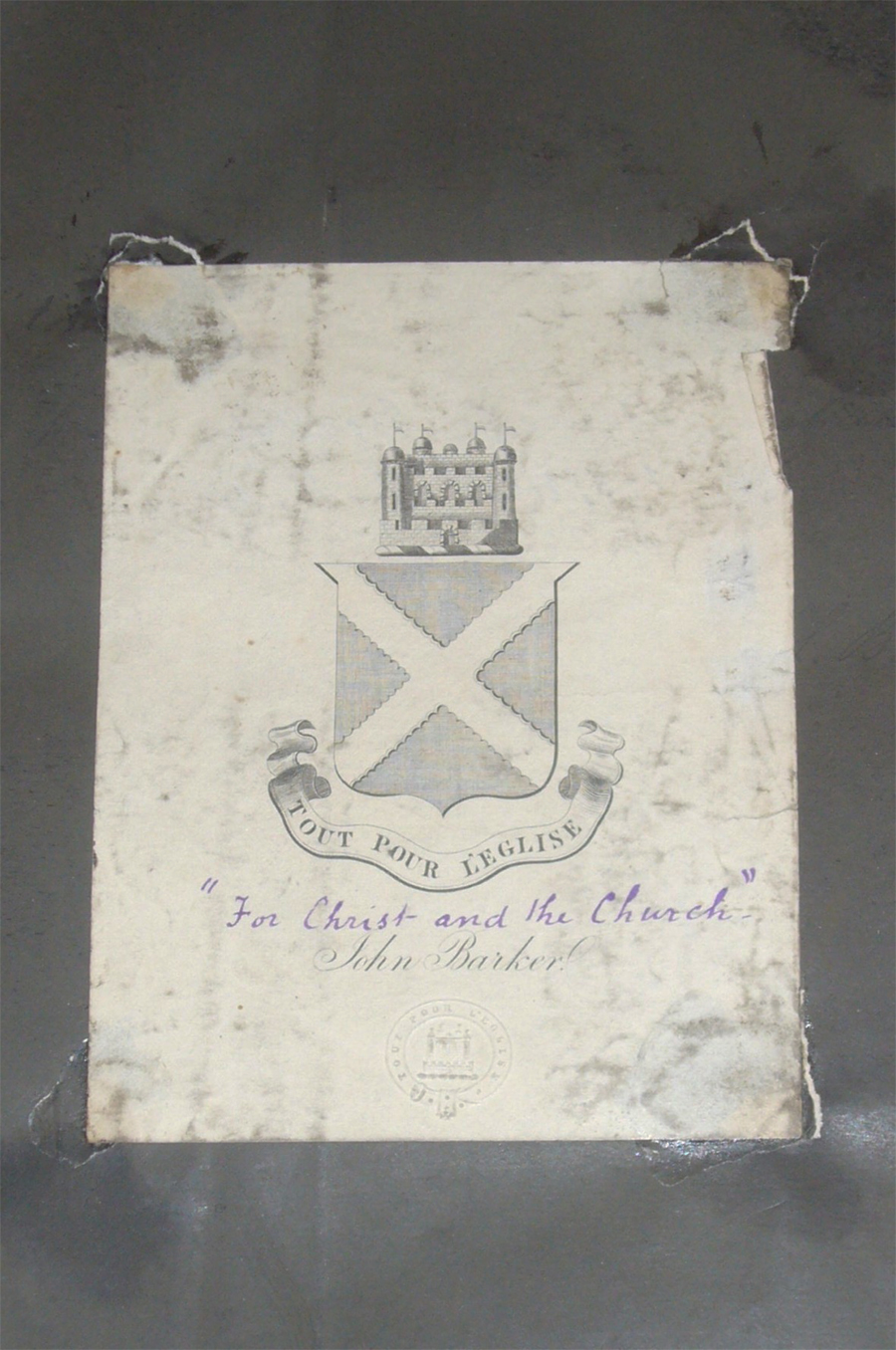
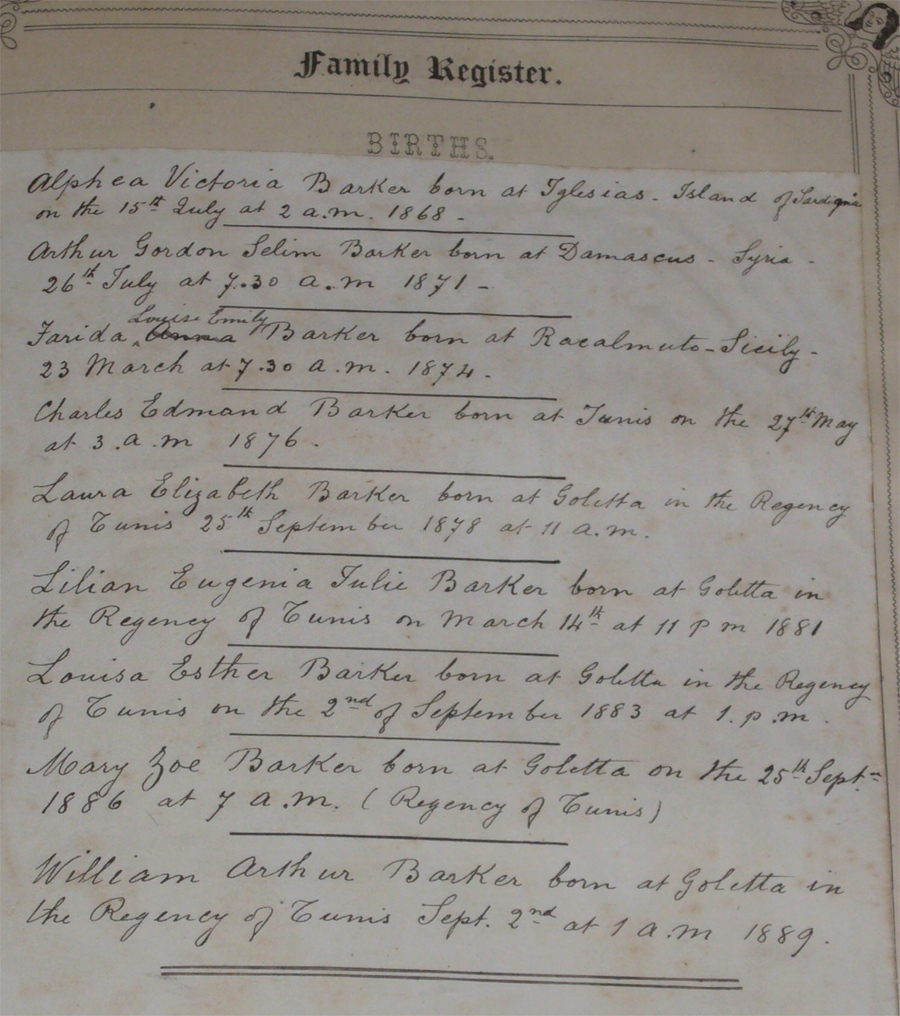
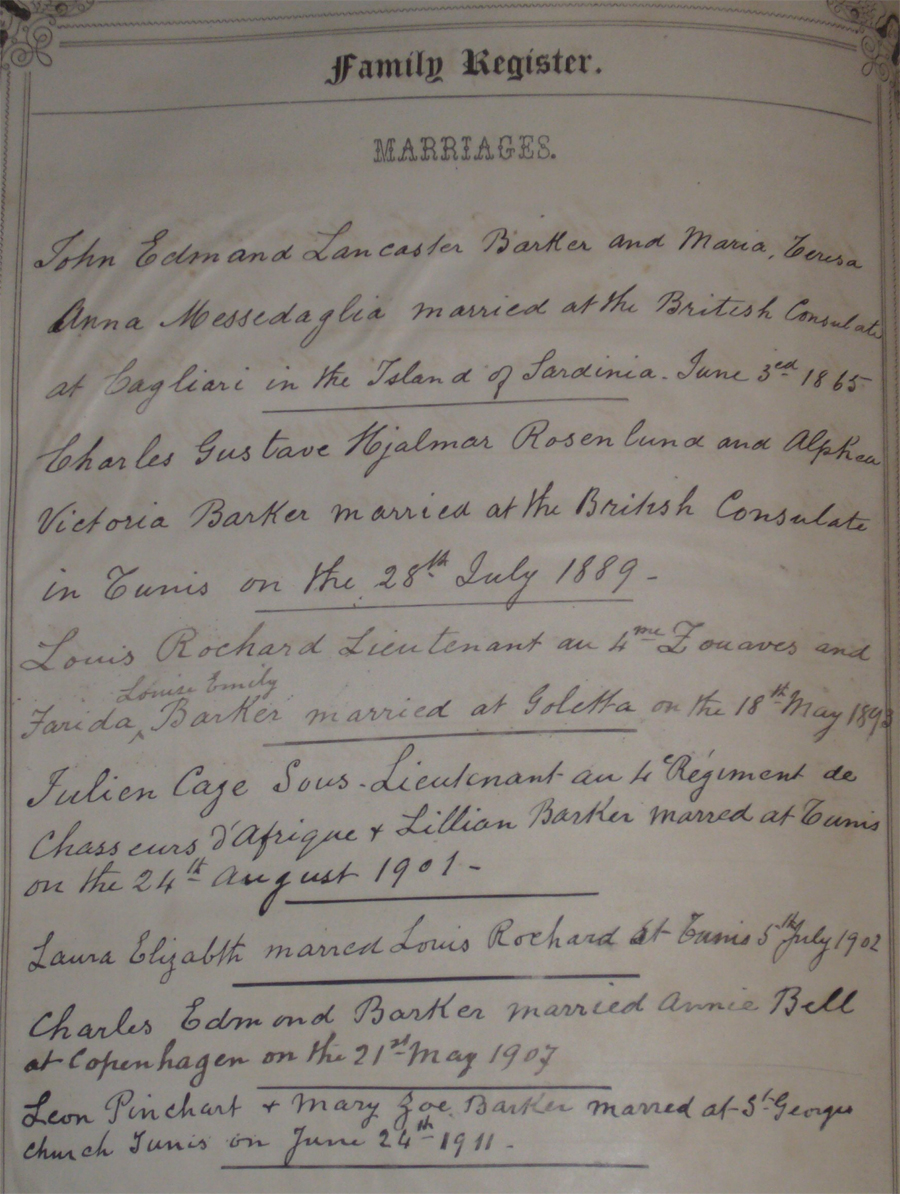
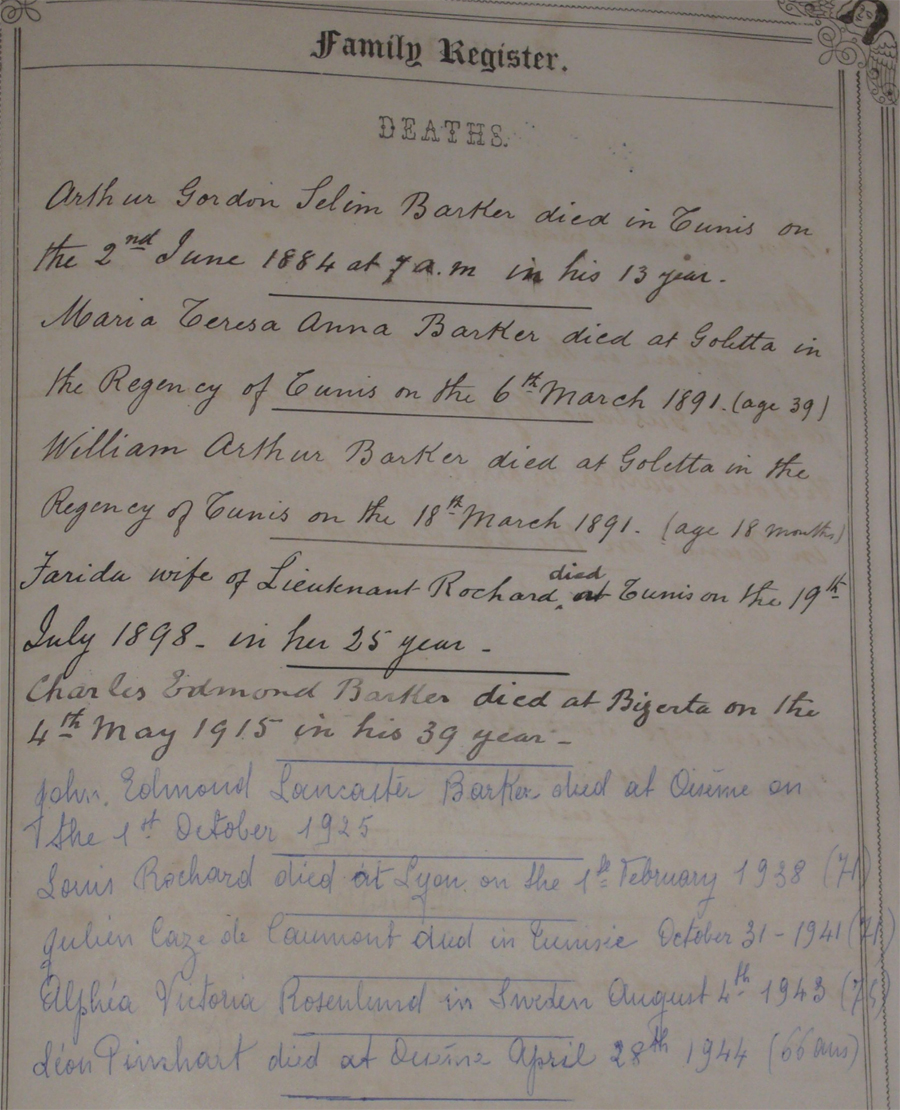
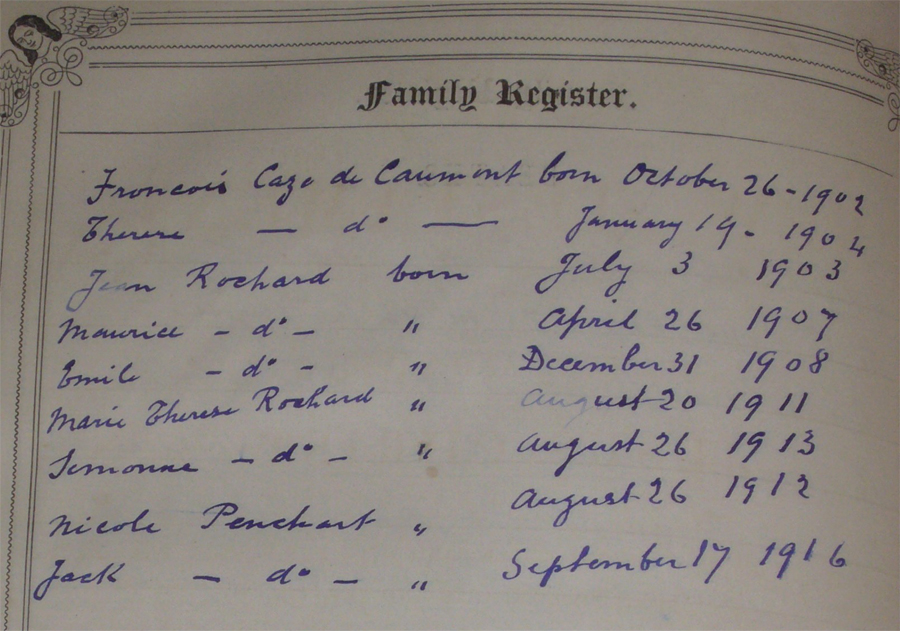
Entries in the Barker / Pinchart bible covering the period 1868-1944.
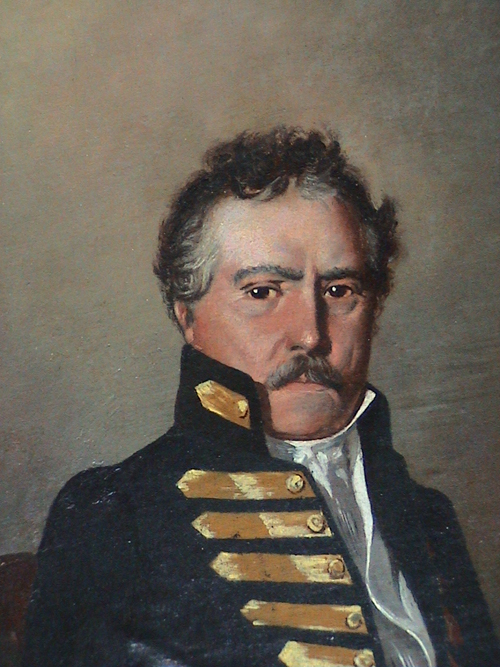
An oil painting (full sized version) in the possession of the Pinchart household of the elder John Barker Consul and showing slight differences from the pen sketch (missing epaulettes, so perhaps this done post-retirement) in the possession of another branch of the Barker descendants.
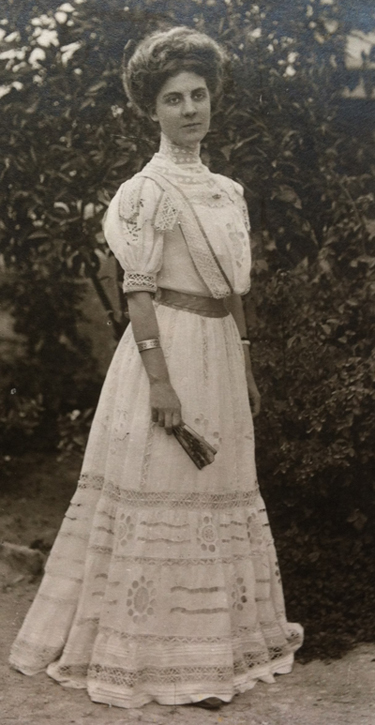
Mary Barker 1930
